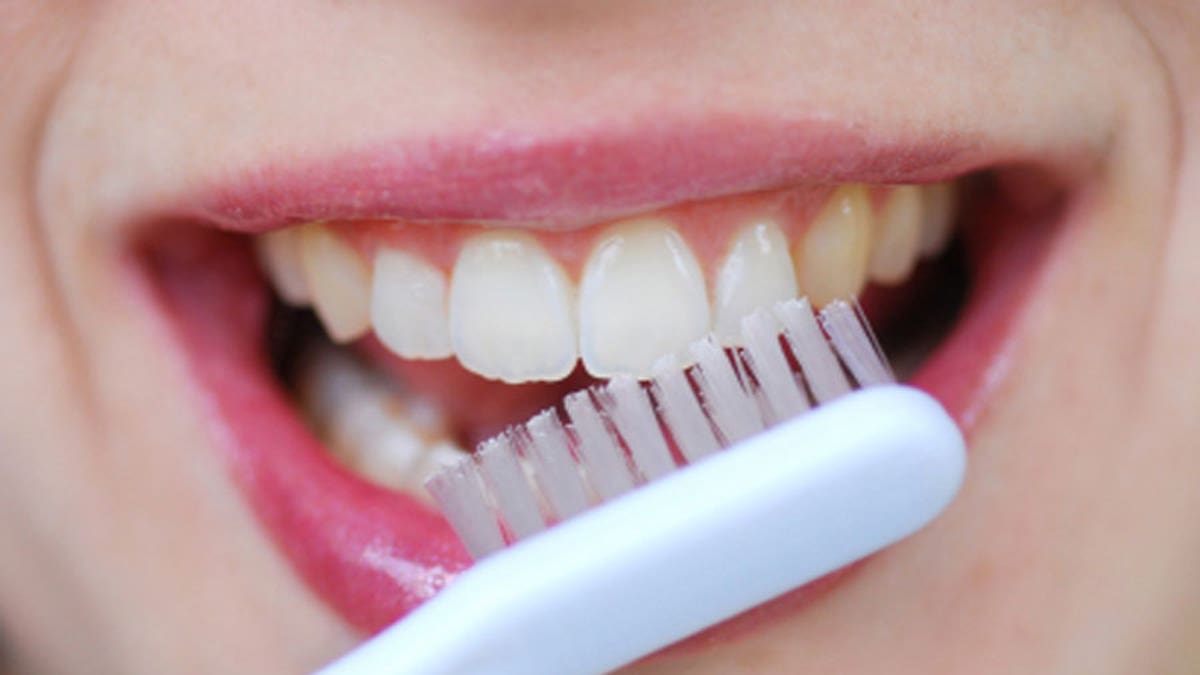
(iStock)
Maybe you’ve seen the recent headlines: Can’t chew? You could turn crazy! That’s what a new study in the Journal of American Geriatrics found: Your ability to chew might predict your risk of dementia. But don’t believe the headlines—those conclusions are overblown.
First, the study: Researchers asked 557 people questions about their dental health (including how easy they found it to chew on apples and bread) and administered a questionnaire to screen for cognitive impairment. Then they found that subjects who reported trouble chewing—regardless of their overall dental health—were more than twice as likely to suffer from impaired cognitive function as those who reported no trouble.
But here’s the problem: The researchers don’t know if mental decline leads to poor dental care and less bite force, if trouble chewing impacts the brain, or if it’s simply just a random correlation.
So while chewing doesn’t make the cut, there are other small signs that can signal big problems when it comes to your brain, said Dr. Andrew Sills, associate professor of neurological surgery at Vanderbilt Medical Center. Beware of these three signs that could point to a faulty noggin.
For more tips to keep your mind in tip-top shape, learn 27 Ways to Power Up Your Brain.
1. You Can’t Find Your Keys—and Everyone Else Can
The problem with self-checking for signs of decline is that you often focus on the wrong things, says Dr. Sills. For instance, you worry about misplacing the car keys when that’s perfectly normal. Brain systems like the hippocampus—crucial for memory—age faster than other parts of your brain. If you’re worried about your memory, compare yourself to others your age. Don’t remember where you parked, but everyone else is walking to their cars? It could be more than normal aging, said Dr. H. Branch Coslett, professor of neurology at the University of Pennsylvania School of Medicine. But if you and your friends your age all have trouble remembering where you parked, don’t worry—you’re just getting older.
2. You Feel Numb
Make sure you know the warning signs of an impending stroke—they can appear as early as seven days before a major attack, according to a recent study in the journal Neurology. If you experience sudden numbness, memory loss, or difficulty walking in bouts lasting less than five minutes, write down when your symptoms started and head to the doc, pronto. You might be suffering from a mini-stroke—a minor stroke without long-lasting neurological effects that can lead to a more serious stroke, Sills said. The good news: Receive proper treatment now and you’ll likely avoid having a follow-up, life-threatening stroke, said Sills.
3. You Get Weird Headaches
Brain aneurysms—blood-filled-bulges that form in the walls of your blood vessels—are often, but not always, fatal. And contrary to popular perception, you can spot them coming, Sills said. In fact, over the last three decades, survival rates have increased nearly 20 percent, per a 2009 study in The Lancet. So what are the signs? If you experience a sudden, splitting headache with neck pain that feels somewhat like sunburn, seek immediate help, said Sills. But don’t panic if you’re prone to migraines; over 99 percent of headaches don’t predict a problem, Sills said. Look out for new patterns, like an onset of painful, reoccurring headaches when you’re not prone to them.
What if you could ease your pain without meds? Discover The Pill-Free Headache Fix.








































